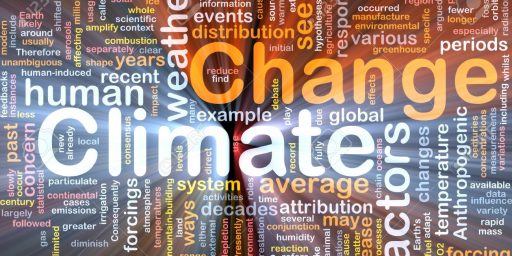European Hypocrites
I have to say it is rather amusing to see that Europeans are actually nothing more than hypocrites when it comes to global warming. For sometime now I’ve read about how Bush is a bad guy for at least in part for not supporting the Kyoto Protocols. For example, there is this article from the BBC, this article from CNN,
LONDON, England — Dismay is being expressed across the world at the decision by U.S. President George W. Bush to abandon the 1997 Kyoto Treaty aimed at staving off global warming.
Then there is this article,
European officials warned President Bush on Thursday that U.S. relations with the rest of the world could suffer if he sticks by a decision to pull out of an agreement on reducing global warming.
“This isn’t some marginal environmental issue that can be ignored or played down,” European Union Environment Commissioner Margot Wallstroem said at a news conference. “It has to do with trade and economics.”
Wow, that sounds kind of dire. And we also have this one,
The European Union has warned President George Bush that the US must honour its agreement to cut greenhouse gas emissions blamed for causing global warming.
The call to Mr Bush to show the “political courage” to stick to the deal made in Kyoto comes just as the president is dismaying environmentalists with his energy policies and as California plunges deeper into a power crisis.
But what are these courageous…errr spineless Europeans doing about global warming? Why handing out pollution permits that are increasing over time. Europe is supposed to have a cap-and-trade program in terms of green house gas (GHG) emissions. The theory is that over time the regulating authority ratchets down the number of permits so that they become increasing expensive and firms look to either installing technology to reduce emissions, raise prices to cover the costs of buying emission permits or simply going out of business. The goal, reducing GHGs back down to some target level. However, if you are increasing the number of permits/the amount of emissions you get exactly the opposite result: an increase in GHG emissions.
The EU’s innovative emissions trading scheme risks becoming “pointless” because members are giving more pollution permits that industrial plants need, the EU environment commissioner said Monday.
“If member states put more allowances into the market than are needed to cover real emissions, the scheme will become pointless and it will be difficult to meet our Kyoto targets,” commissioner Stavros Dimas told journalists in Luxembourg.
And therein lies the central problem with Kyoto. Each country (or in this case the EU) will have an incentive to try and game the system, to increase their emissions allowances and look to the other “players”–e.g. the U.S.–to cut emissions.
The Economist puts it this way,
Europe’s Emissions-Trading Scheme (ETS) was one of the few substantial developments to emerge from the wreckage of the Kyoto Protocol. Its purpose was threefold: to cut emissions; to get polluters to pay for the damage they cause; and to get industry to invest in cleaner technology.
Under the ETS, countries set national targets for emissions and give 13,000 factories and power plants in Europe’s five dirtiest industries allowances to emit a certain quantity of carbon. If companies want to emit more than their limit, they have to buy either extra allowances from other plants, or credits from plants in the developing world that have cut their emissions.
This trade in allowances gave birth to the carbon market. It is sizable and growing fast: in the first half of 2006, carbon to the value of 12 billion euros ($15 billion) was traded, five times more than in the same period in 2005. The idea was to screw allowances down over time, thus raising the price of emitting carbon.
Unfortunately, the ETS has failed in all its three aims. Emissions were flat before the scheme’s introduction in 2005 (largely because manufacturing is moving out of Europe); have been flat since; and, if the European Commission accepts the national plans for handing out allowances put forward for the 2008-12 phase of the scheme, will continue flat.
With so many allowances on the market, the price of carbon credits may well collapse and the carbon market fade away.
Keep this in mind the next time you read about those mealy mouthed Europeans blabbering on about Global Warming, Kyoto and Bush’s failure to take any of it seriously.
Now don’t get me wrong, in theory a cap-and-trade program is a great way to internalize external costs such as those caused by pollution. The problem though is establishing such a market and making it work. As Ronald Bailey notes,
Of course, man-made global warming is a global problem. If European countries with well-developed institutions have difficulty in establishing an effective market in greenhouse gas emissions, think of how much more difficult it will be to extend such a market across the globe. The temptation and the ability of governments to cheat on their emissions allocations will be irresistible and enforcing Kyoto-style reductions will prove to be impossible.
Impossible maybe a bit of an exaggeration, but global aggreements between soverign nations have always been problematic. OPEC tends to have a problem with individual members cheating on production quotas when prices get high. And even with trade agreements countries at times try to “cheat” as Bush did with steel tariffs and tariffs on shrimp. Of course, the steel tariffs point to one possible solution, a punishment mechanism for cheating. The Kyoto Protocol does have an enforcement mechanism, but it is pretty lame,
If the Enforcement Branch determines that an Annex I country is not in compliance with its emissions targets, then that country is required to make up the difference plus an additional 30 percent. In addition, that country will be suspended from making transfers under an emissions trading program.
So the offending country not only has to make up the difference it must cut emissions by an additional 30% (of what I don’t know) and are suspended from trading emissions permits. The offending country has in effect renegged on the protocol and the punishment is to tell them to knock it off and kick them out at the same time. Brilliant. How about a punishment mechanism that slaps a 10% tariff on all exports from the offending country. Now that would punish cheating.
Still, the point remains, the Europeans are all talk and no action when it comes to following through on the Kyoto Protocol.






Its a good thing its so hard to fire people in Europe or some people would be sweating having to explain the $15 billion of carbon credits they bought. But as it is, its just a minor inconvenient truth.
Europe may well be talking a better game then it plays in regards to global warming. That does not excuse our own inaction and failure to take steps to protect the environment.
Perhaps we should put more effort into tending to our own garden and less into pointing out the shortcomings of others…
My problem with the Kyoto treaty is that it left developing nations off the hook. It would have been far easier for these nations to put in place more environmentally friendly techniques because they had little to change. The cost could have been mitigated by foreign aid.
With Tony Blair’s global warming announcement and a 700 page report this week I at first was pleased someone was addressing the item and who better than likeable Tony Blair? Seems the EU has some of the same characteristics of American public issue debate. Click Here for More
The problem with the treaty is that it is NOT based upon science. We do not have a global warming problem. This is not a contested issue.
bee,
text me when you return to planet earth…
I find it tres amusante that the Euroweenies were able to get away with a game of three-card monty on global warming.
When they signed Kyoto, they knew they could reach the goals for the first few years. The UK had closed it dirty coal mines and steel industry; Germany had closed the hyper-polluting factories in the former Eastern Germany.
Now, though, having already cashed that chip, they find they’re unable to meet targets without incurring unacceptable economic costs. Imagine that…
Burgess,
I have a great idea, why don’t you walk into a pub in Liverpool or a bar in Dresden and start talking about “Euroweenies”?
The theory that we could never ever get a cap/trade scheme to work because of the incentive to cheat kind of fails when you look at the whole CFC thing, don’t it?
M1EK,
Who said “never” get it to work? Steve pointed out the problems inherent in a cap and trade system which in turn means that their needs to be a means to prevent cheating. The fact that cap and trade could work was never in dispute. The question was did Kyoto get even close to getting the right set up and the data is saying no.
yetanotherjohn,
The jury’s still out. A ton of measures many of those countries enacted in an attempt to reduce CO2 have delayed impact, even if they work perfectly (passing a bill to subsidize wind energy, then wait years for the turbines to actually be built, for instance).
YAJ, well you have to have the special reading glasses that M1EK has…the ones that allows him to divine the true meaning of a person’s written words.